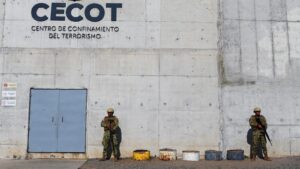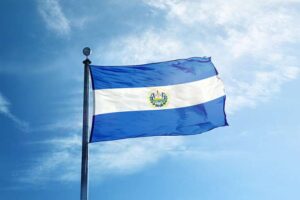[Caracas/Washington D.C. Geneva, April 12, 2022]
The undersigned human rights organizations welcome the recent announcement by the Prosecutor of the International Criminal Court, Karim A.A. Khan, on the establishment of a decentralized office of the ICC Prosecutor’s Office in Caracas, and the declaration that the Office will work jointly with important international allies. However, we consider it necessary to emphasize some essential aspects in this regard:
The need to have an effective Office that can fully fulfill its mandate
We trust in the value of the local presence of the ICC through a decentralized office. To do this, we call for it to be provided with the necessary budget to be able to have an effective and significant impact. We also expect the Office to be duly represented by high-level staff with the expertise and knowledge of the situation on the ground. We welcome the announcements made to ensure the cooperation of the national authorities for the installation of said Office, as well as for the entry into the country, and the free movement of its personnel. However, our organizations have noted with concern, the reduced budget and staff of other decentralized offices of the ICC in the past, and for this reason, we warn of such risks and ask that every effort be made to ensure an office that can work in a timely manner, safely, effectively, and independently.
The need for the Office to work with all key actors
Although we recognize the intention of the Office of the Prosecutor to strengthen cooperation ties with other key international actors in the framework of the investigation in Venezuela, including the Office of the United Nations High Commissioner for Human Rights (OHCHR), we consider it essential that the Decentralized Office also establishes a working relationship and effective cooperation with other actors, such as the Independent International Fact-Finding Mission on the Bolivarian Republic of Venezuela (“FFM”), which has reliably documented international crimes committed in Venezuela, as well as the current state of the judiciary.
The need for the Office to be able to constitute a space for genuine and safe dialogue with victims, their families, their representatives, and with civil society.
The interaction of the Office of the Prosecutor with Venezuelan civil society, but, above all, with the victims, survivors, their families, and their representatives, is a matter of enormous relevance. In this sense, we express our concern at the few spaces for interaction with civil society that have been created by Prosecutor Khan’s management in the framework of his two visits to Venezuela. We call upon the Office of the Prosecutor to generate safe and transparent spaces for dialogue with the victims and civil society in Venezuela, with the due guarantees offered by the government that no reprisals will be taken against those who approach and cooperate with the Office. Likewise, we reiterate to the Office of the Prosecutor our firm interest in sustaining a fluid dialogue in all possible spaces of interaction, including in The Hague.
Concern about working with the Venezuelan judicial system
We express our deep concern at the way in which the ICC Prosecutor’s Office envisages its work with the current Venezuelan judicial system. According to its public statements, the OTP seems to assume that the current Venezuelan judicial system will be able to carry out, independently and genuinely, investigations into crimes against humanity and serious human rights violations.
As you are aware, and as the FFM has emphasized, the current judicial system is being severely questioned, not only because its structure fails to meet the minimum standards of impartiality and independence, but also because it has been a key player in the policy of repression and entrenchment of impunity. For this reason, it is important to refer to the second report of the FFM, from September 16, 2021, in which it concluded that: “[j]udicial and prosecutorial actors […] failed to prevent or fully address violations and crimes committed by other State actors against real or perceived opponents […] These failures directly contributed to impunity for human rights violations and crimes and prevented victims of violations perpetuated by State security and intelligence bodies from accessing effective legal recourse and judicial remedies.” This information was corroborated by the OHCHR in its 2019 annual report in which it highlights that, “[t]he lack of independence of, and corruption within, the judiciary are also major obstacles faced by victims in their search for justice and reparation,” a concern that is maintained in other more recent reports.
Due to the above, although we value the references made by the ICC Prosecutor’s Office in the Memorandum of Understanding signed with the government of Nicolas Maduro, regarding the recognition of the reforms to the judicial system that are carried out in Venezuela; and though we consider it important that the Prosecutor’s Office includes within its mandate positive complementary measures in order to strengthen the capacity of judicial operators to investigate crimes of this nature, we are concerned about the few guarantees that exist in the current justice system to be able to investigate genuinely, effectively, and independently. We therefore consider that, despite the current reforms initiated by the State, the Venezuelan judicial system lacks the ability and willingness to carry out independent judicial processes against crimes against humanity and serious human rights violations.
We express our concern regarding the uncertain course of the investigation
In relation to the guarantees that the Rome Statute offers regarding complementarity, including the measures in light of articles 18 and 19, we are concerned about the lack of clarity of the course of the investigation in Venezuela, including the potential cases and those alleged responsible to be investigated by the ICC Prosecutor’s Office. Particularly, the lack of clarity on a fundamental idea is very disturbing: whether the investigation at the ICC will continue. The language used in the aforementioned statement by Prosecutor Khan regarding the fact that the investigation is not a “one-way street,” requires greater precision. In the same way, it is very important that the conclusions and parameters of the Office of the Prosecutor that motivated the opening of an investigation be made public.
Gender-based approach throughout the investigation
Finally, we call on the ICC Office of the Prosecutor to adopt a necessary gender-based approach throughout its investigation, not only when analyzing the crimes committed, but also in its interaction with victims, family members, and representatives.
From the monitoring of various international organizations, it has been shown that victims continue to face legal obstacles to access effective justice, especially women who experience specific difficulties due to their gender, and are usually the ones at the forefront of the fight for truth, justice, and reparation.
Acceso a la Justicia
Alerta Venezuela
Amnistía Internacional
Centro de Justicia y Paz (CEPAZ)
Center for Justice and International Law (CEJIL)
Comité de Familiares de Víctimas de los Sucesos de Febrero y Marzo de 1989 (COFAVIC) Due Process of Law Foundation (DPLF)
Justicia, Encuentro y Perdón (JEP)
Justicia y Proceso Venezuela (Juyproven)
Observatorio Venezolano de Prisiones (OVP)
Programa Venezolano de Educación Acción en Derechos Humanos (Provea) Robert F. Kennedy Human Rights
Vicaria de Derechos Humanos de la Arquidiócesis de Caracas
Washington Office on Latin America (WOLA)
Women´s Link Worldwide
World Organization Against Torture (OMCT)



